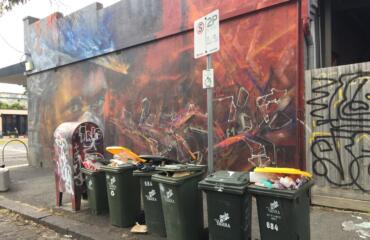‘We are at a crisis point. The extinction of species on the planet is accelerating and when they are gone, they will never return. This is something we can no longer ignore.
Modern zoos play an important role in the preservation and conservation of endangered species. They also provide people with access to animals they might otherwise never encounter.

Contact with animals is important. Many people who visit zoos would never be able to see those animals in the wild. If you look in the literature, however, there are critical voices out there about zoos.
People want to marvel at animals, and we want to share them, but we also want to know that they are well looked after. I don’t think poor animal welfare is in anyone’s interest and I don’t think zoos and animal welfare are incompatible.
I put forward a hypothesis that the disquiet around zoos indicates there are things we can be focusing on from an ethical point of view. We need to understand that these species are not just a genetic reservoir. They are thinking, caring, feeling, emotional creatures. They have good days and bad days, and it’s up to us to make sure they have more good days than bad days.
My thesis looked at different ethical frameworks and the welfare of animals in zoos. The part that had the biggest impact on me was the area around conservation. I discovered an emerging trend called ‘compassionate conservation’. It’s the idea that the ends don’t justify the means. It suggests that in the work we do, we need to consider the impact of every individual as well as the good of a species.
It’s about getting a better understanding of what animals need and stretching that across a whole range of different species. We need to ask the question, ‘What does this animal need for success, to thrive and not just stay alive?’
Now, more than ever, the world needs good zoos but we can’t understand what a good zoo is without spending time understanding the ethics behind it. When you are in a business that deals with animals, there is a duty of care. You can never be complacent or think that you know enough about it and we are learning more about animal welfare all the time.

There are people out there who disagree with keeping animals in captivity, so my PhD was about getting back to first principles of what is the purpose of zoos. In Australia, our zoos focus on conservation because a lot of species here are at threat.
In other zoos, they focus on different things; other zoos focus on other things. In Detroit, for example, they concentrate on animal rescue. Others might focus on rehabilitation.
There are very few zoo people who talk about ethics, and most people who have studied ethics have not worked with animals. Animals are sentient beings and they have needs. If you understand that, you have probably thought about how we care for animals at zoos. This is why zoo people need to be a part of the ethics conversation.
Ethics are always changing; we need to revise and review them. It’s not as simple as drawing a magic line and saying these are good practices or these are bad. It takes some careful research into each species to determine the things that improve welfare and the things that don’t.
It’s about getting a better understanding of what animals need and stretching that across a whole range of different species. We need to ask the question, ‘What does this animal need for success, to thrive and not just stay alive?’
If an animal is born in captivity and has spent its whole life in and around people, it’s going to be perfectly happy around people and perfectly unhappy being thrust back into the wild. They are often really unequipped for that.
It’s not good enough for an animal to live on concrete its whole life. We see this in different animal-based industries as well. Animals need a suitable place to live, they need other animals, and providing these things is ethically responsible.
When zoos take the high moral ground, and become as ethical as they possibly can, it is good for business. It’s good for zoos and it’s good for the animals they care for. We should be doing it. When we do, our membership base grows. The more we do the right thing, the more conservation work we do, the more we focus on animal welfare, the better we do. ’
► Jenny Gray is the chief executive of Zoos Victoria, whose PhD, completed in 2015, is titled: ‘An Ethical Defence of Modern Zoos’.
* My PhD is an irregular series in which The Citizen speaks with recent Melbourne University PhD graduates.


